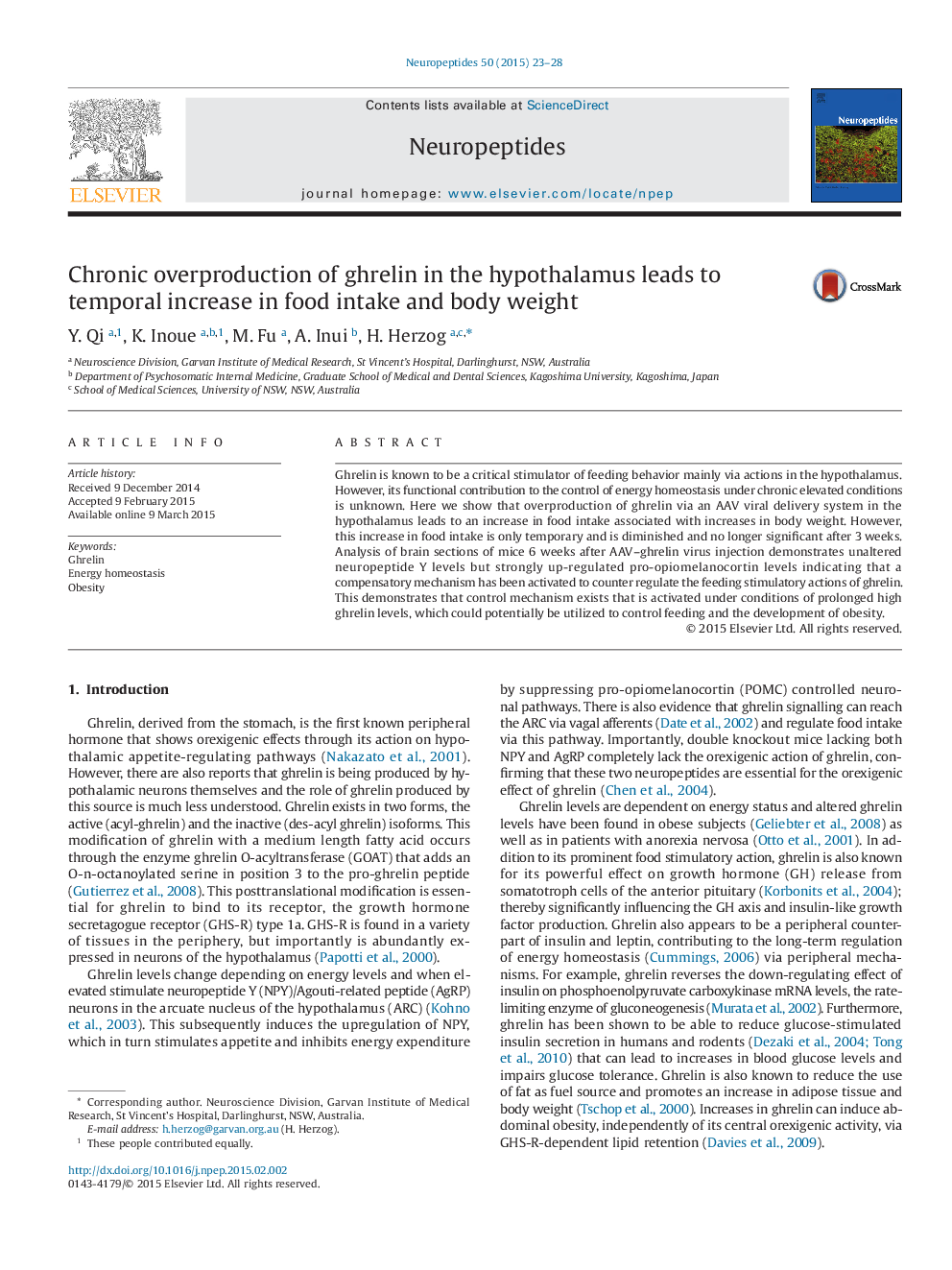| Article ID | Journal | Published Year | Pages | File Type |
|---|---|---|---|---|
| 2808000 | Neuropeptides | 2015 | 6 Pages |
•Hypothalamic ghrelin plays an important role in energy intake.•Chronic ghrelin elevation in the hypothalamus increases body weight.•Hypothalamic ghrelin overexpression increased food intake transiently.•Up-regulated POMC levels compensate for the feeding stimulatory role of ghrelin.
Ghrelin is known to be a critical stimulator of feeding behavior mainly via actions in the hypothalamus. However, its functional contribution to the control of energy homeostasis under chronic elevated conditions is unknown. Here we show that overproduction of ghrelin via an AAV viral delivery system in the hypothalamus leads to an increase in food intake associated with increases in body weight. However, this increase in food intake is only temporary and is diminished and no longer significant after 3 weeks. Analysis of brain sections of mice 6 weeks after AAV–ghrelin virus injection demonstrates unaltered neuropeptide Y levels but strongly up-regulated pro-opiomelanocortin levels indicating that a compensatory mechanism has been activated to counter regulate the feeding stimulatory actions of ghrelin. This demonstrates that control mechanism exists that is activated under conditions of prolonged high ghrelin levels, which could potentially be utilized to control feeding and the development of obesity.
